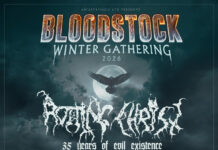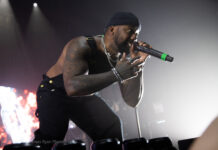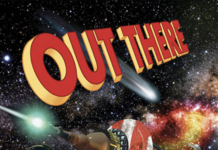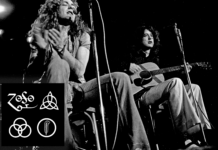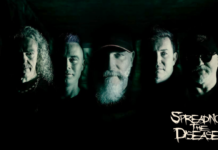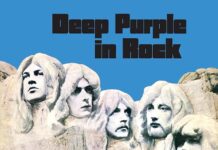Steve Hackett is a stellar guitarist and a hugely significant and influential figure in prog-rock. From his time with Genesis between 1971-77, when they were at their most creative, and from his career as a solo artist, he’s always been unafraid to mix things up and, on his new album, At The Edge of Light, his 26th studio album, he’s done just that. This is music rich in scope and vision and is so much more than just a collection of new songs.
If you think Hackett is now simply all about the rehashing of Genesis material, this album will disabuse you of such a notion. Here, he brings together a quite diverse array of styles and genres, ranging from epic orchestration, world music, gospel, plus of course some fine guitar driven rock. He’s also reached out well beyond the confines of the traditional rock band line-up to include the usage of instrumentation not usually associated with his releases, such as tar, a cymbalom, a sitar and a didgeridoo, to create some quite unique sounds.
All of which is quite appropriate as, on this album, Hackett tackles some very deep social and political issues. The title of this album reflects Hackett’s concern with the state of the world at present, particularly the worrying rise of Right wing philosophy, and as he says, “this album embraces the need for all musical forms and cultures to connect and celebrate the wonder of unity in this divided world.”
From the opening notes of ‘Fallen Walls and Pedestals,’ the music is grandiose and it conveys the feelings and moods Hackett is attempting to capture in his songs. An example is ‘Underground Railroad,’ a song about the incredible risks taken to free slaves in the deep south and get them to Canada. The pain of slavery is beautifully expressed by singers Durga and Lorelei McBroom. The track ‘Beasts In Our Time,’ a play on Chamberlain’s ‘peace in our time,’ talks about the forces out there we really should be wary of. “There’s an evil force from the mists of time once again on the rampage.”
But, for all his misgivings, Hackett remains a cautious optimism about humanity, and the album finishes with a song of hope called ‘Peace,’ which is a celebration of bravery, awareness and compassion. Beginning with a single voice and a piano, it builds up to a mass of voices alongside Hackett’s melodic guitar. As he says, “We’re right at the boundary between light and dark, but the fact we end with peace shows I still have hopes for where we’re going.”





